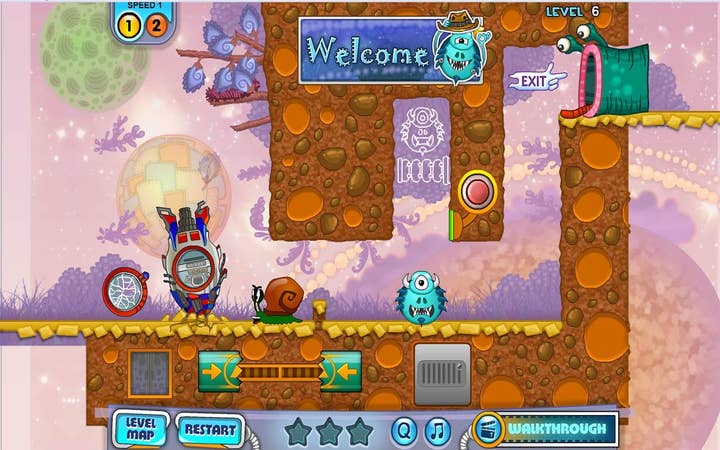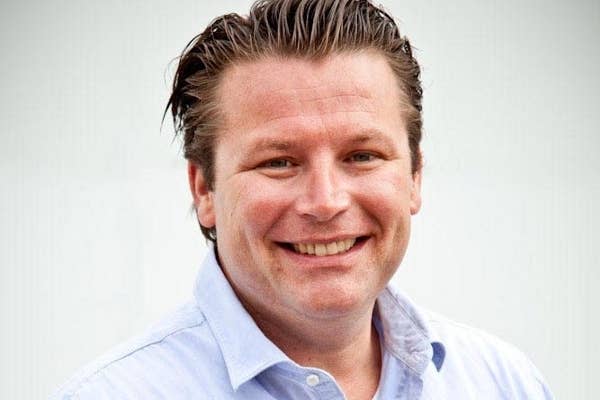Spil: Casual games "just don't pay the bills any more"
CEO Eric Goossens on the shrinking opportunities in casual development, and Spil's solution to the problem
Something has changed in casual game development, and not for the better. Rewind five years and the explosion in casual gaming seemed to point towards a utopian ideal of accessible development: low budgets, cheap tools, frictionless communication; everything that the increasingly brutal reality of console development couldn't offer. There was an exodus of talent to emerging platforms like Facebook, iOS and Android and, inevitably, the market flooded with product.
That's the point that Eric Goossens, CEO of Spil Games, has taken to the stage at Casual Connect to make, and he has the stats to back it up. In December 2013, the App Store reached 1 million apps, 18 per cent of which are games - and that's just one app store among many. In the year leading up to December 2013, the cost of user acquisition rose from $1 to $4, with only a 38 per cent rise in average revenue per user as a counterweight. Then there's the rising production values, and a significant increase in the complexity of operating a successful product.
"At first it's always an indie happy-land, and then the suits like me come in and start fucking it up for everybody"
Goossens fixes the crowd with a stare. "That makes for rough seas if you're an indie developer." No kidding.
When I meet with Goosens after his talk he's in high spirits, and somewhat regretful of the portentous tone with which he opened his speech. The situation facing indie developers in the casual space is not entirely negative, the problems not completely insurmountable, but there's no escaping an environment that seems to grow more hostile to smaller businesses with each passing week.
"It's a scary place," he says solemnly. "It's a cycle we've already seen. I saw it 12 years ago in the console market. I'm one of the founders of Zylom, from the downloadable games era - we sold that company to RealNetworks. During that period I saw fierce competition, price points under pressure, production values spiralling up. Back in 2006, the cost of games went from $30k to $40k a game to, the last game that we built, $750k for one game. And the price points were one third, from $29.95 to $9.95. Customer acquisition costs went up. It was ridiculous.

"We've seen it in console, we've seen it in PC downloadable, we've seen it on Facebook. At first it's always an indie happy-land, and then the suits like me come in and start fucking it up for everybody. I'm a friendly suit, but you've also got some assholes in there."
Goossens believes that casual game development is hurtling towards the same conditions that forced so many talented people away from packagaed retail over the course of the last console generation: huge economic pressures, razor-thin margins and a small number of large companies taking pretty much all of the money. For Goossens, it's the logical endpoint for all ecosystems - with the possible exception of Steam - and, "in the App Store it's already there."
"Go through the top ten grossing apps and they'll all be games that cost $500k to produce, at a minimum, and then you need a six, seven, eight-person team to manage them, which is another $1 million a year. Depending on where you're located, obviously, but those top ten games are located in Japan, the United States, Finland. Those aren't cheap countries. And then you'll pay a shitload of money to get your users up.
"There's Tier A: that's King, Supercell and GungHo, which probably take 60 per cent of total proceeds from the App Store - I would guess. Then there's Tier B: smaller companies like EA, Line, Glu; they know their shit, and I think they'll take another 20 to 30 per cent of all the money being made. And then the indies are left with the scraps, that other 10 per cent... It just doesn't pay the bills any more."
I mention the number of sessions at Casual Connect dedicated to debating the 'right' and 'wrong' way to approach free-to-play, the business model that dominates the casual market. I ask Goossens, whose company is no exception to that rule, if he has an opinion on the matter. He smiles.
"We aren't philosophical about how we should make money. Principles are usually very expensive if you hold on to them"
"I have a ton of opinions, but they're useless," he says. "I don't think we are, as a company, naturally philosophical or fundamental about how we should make money. Principles are usually very expensive if you hold on to them. History has proved that."
When Goossens talks about "history" one needn't look back very far to find what he means. In just the last five years, the list of console developers that have succumbed as their best practices and business models stopped working is long and peppered with distinguished names. Times change, and the games industry changes quicker than most. Right now, Goossens says, it's hard enough for small developers to make any money at all. In that context, hand-wringing over largely subjective notions of right and wrong is hard to justify, and Goossens is certain that the debates taking place at conferences like Casual Connect never filter down to the average gamer.
On Spil's platform, quality is desirable rather than an essential condition of doing business, and Goossens believes that the casual audience is more than comfortablle with that idea. Let's put it this way: Spil has 180 million users playing 5000 games; it is the games industry as economy of scale, with enough choice to keep everybody happy.
"The audience will guide us," he says. "We have this huge footprint - 180 million uniques every month - that tells us the story. We don't have to be philosophical.
"When you look at Spil, and companies like Spil, they usually cater to an audience that consume a lot of different games, and they don't mind if a game sucks - they just won't click on it again. They'll find their jewels every now and then and they'll fall in love with a couple of franchises, but they'll always be testing and trying new stuff."
With such a huge audience of players circling its collection of games, Spil is now introducing an ad network that - Goossens claims - will add 20 to 30 per cent to its developers' existing revenue. If a player doesn't purchase anything within a game for a set period of time, an advert will play at an opportune moment - in-between levels, for example. If they make a purchase, the adverts will be disabled. For Goossens, this collective approach - leveraging Spil's size to the benefot of all - is an essential new revenue stream for smaller developers struggling to turn a profit in a crowded marketplace. Not only that, but it takes advantage of of a number of converging forces in the advertising industry.

"For the first time since I've been in this industry [12 years], three things are coming together. First, a lot of users are playing a lot of games; last year, 1.2 billion people, and for the first time ever more time spent playing online and playing games than watching television. The audience is there on a massive scale, and they play 40 minutes on average, so games are long-form content.
"Second, they engage with the games with a positive mindset - a happy flow - and developers are seeing this and building games for this. We're educating developers on how to build games around the ads, so they don't annoy you as much.
"We have this huge footprint - 180 million uniques every month - that tells us the story. We don't have to be philosophical"
"And finally, advertisers are now - finally, massively - moving their money away from TV to online in the form of 30-second video ads, and there aren't a whole lot of places where you can put that money in an effective way. It's a sweet spot that will bring two or three years of joy to a company like us.
"I spent two weeks on level 156 of Candy Crush, and then I got it. I couldn't wait to see what the next level would bring. That feeling: I think that's the sweet-spot. I'm leaned in. I'm excited. It's not 10 commercials in a row so I can pee and then come back. It's just one [advert], it's targeted at me, with a relevant message. That's value."
Of course, it's not difficult to conceive of ways that a system where games are built around the placement of adverts could be open to abuse, but, for what it's worth, Goossens' desire to keep his players happy seems entirely sincere. More to the point, he wants to make sure Spil's developers get paid for what they do, even if that doesn't mean global success and a swimming pool full of dollar bills. For the most part, Goossens says, the developers he deals with just want to keep on making games without running the risk of financial catastrophe, and he believes Spil has found a way to do just that.
"I met with a developer from Barcelona this morning, and he said, 'I just want to make games. That's what i do, and I want to make a living doing it. Last year I couldn't pay myself and my business partner a salary for six months. It sucks. I want to be able to build games and pay the bills. I don't have to be a millionaire.'"
"We can offer him that. It's low risk. It's also a lower reward, but it's a great platform and a great team to work with. I read a report recently that said there's more indie developers than ever, putting their creative minds to making games. We want to work with them, and we want to provide an income for them; not because we're philanthropists, but because we've created our business around their needs."

